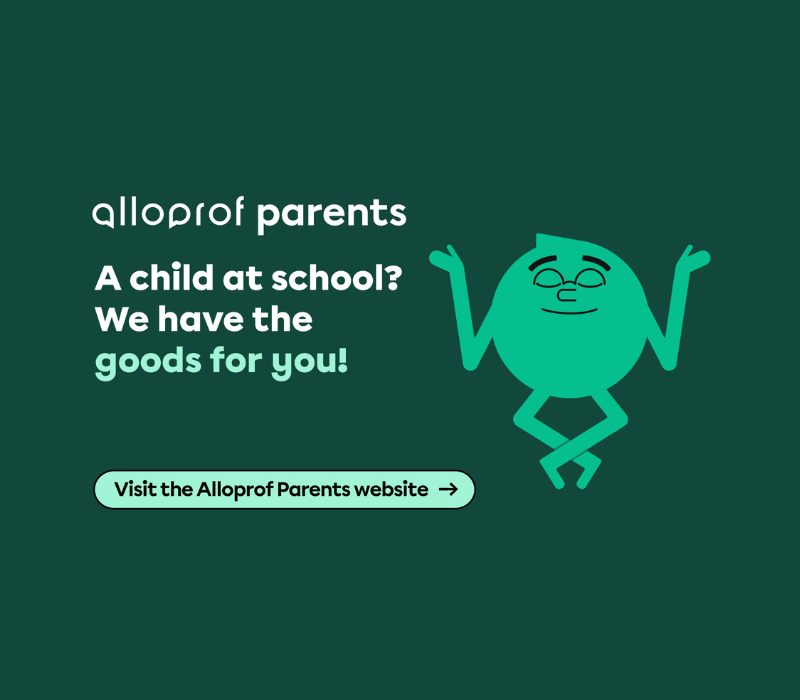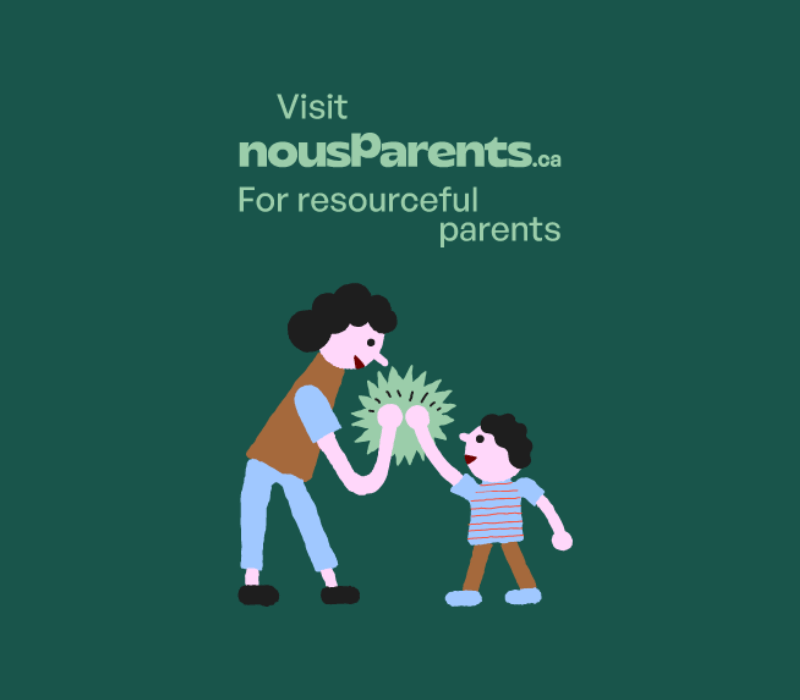


Do you have questions that aren’t answered here?
Write to us using the contact form on the Contact Us page!

Whether the report card is good or bad, a positive reaction will help your child:
Here are some tips for reacting constructively:
Before giving your own opinion…
Then discuss together:
Here are some examples of study strategies to adopt to promote success:
Read our article How should I react to my child’s report card?
Resource to help them study effectively: Alloprof Parents – Smart Study Strategies for Your Child
Votre enfant a besoin de règles pour limiter son temps d’écran, privilégier du contenu approprié et connaître les bons moments d’utilisation. Mais vous devez aussi l’accompagner dans le développement de son autonomie concernant la gestion des écrans. Cela lui permettra d’en faire un usage sain tout au long de sa vie.
D’abord, n’oubliez pas d’être un exemple pour votre enfant. Cela signifie, entre autres, de ne pas toujours avoir votre cellulaire sous la main, de vous fixer des limites d’utilisation ainsi que de planifier des moments et des activités sans écran en solo et en famille.
Pour des trucs pour aider votre enfant à devenir autonome dans la gestion des écrans :
Your child needs rules to limit their screen time, prioritize appropriate content, and know when it’s okay to use screens. But you also need to help them develop independence when it comes to managing screen time. This will enable them to use screens in a healthy way throughout their life.
First, remember to set an example for your child. This means, among other things, not always having your cell phone at hand, setting limits on your own use, and planning screen-free moments and activities for yourself and your family.
For tips on helping your child become independent in managing screen time:
There are many ways to help your child cope with stress.
Visit the Managing Stress and Anxiety page of our Mental Health Tool Box.
There you will find:
Among other things, N.U.T.S. (by Dr. Sonia Lupien) can help you identify stress triggers, which always contain at least one N.U.T.S. ingredient.
You’ll also find quick solutions for reducing stress in stressful situations.
Choosing a career is an ongoing process that takes time. The important thing is not to have all the answers today, but to start a dialogue where your teen feels listened to and supported in their journey.
To give your teen the opportunity to think about their future without feeling pressured, explore the helpful resources on our article Helping your child make choices at the end of secondary school.
We don’t claim to have a miracle solution, but… À GO, on lit! can help your teen find a first book they’ll love.
For now, À GO, on lit! focuses on fostering a love of reading in French (as a second language).
By taking the fun quiz offered by AGOL, your teen will discover a host of books that might interest them.
Why? Well, because we start by looking at their interests and reading habits to suggest appropriate reading material. This gives them an even better chance of finding a GOOD book!
Take the À GO, on lit! quiz here → https://www.agol.ca/quiz/
Pssst! We invite you to take the quiz too and discuss your results with your teen!
Then discover all the resources available to you in the Mentor Area (French only) on the AGOL website.

Alloprof Parents offers free practical resources to help parents support their children aged 6 to 17 in their academic journey.
This service provides a wealth of articles, columns, reports, tools, and videos produced and reviewed by specialists.
Like the 811 health service, Alloprof Parents allows parents to ask questions of professionals such as remedial teachers Monday through Thursday from 5 p.m. to 8 p.m., by phone or through private messaging on its Facebook page.

When a child is born, so is a parent
Parenthood is a unique adventure, filled with magical moments and stimulating challenges.
Trusting yourself, aiming for balance instead of perfection, finding your parenting style, adapting to your reality—it’s a learning journey that happens one day at a time!
On nousParents.ca, find resources, advice, and strategies to help your family’s well-being.